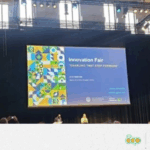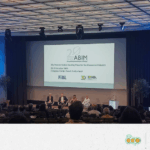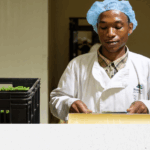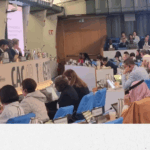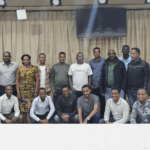- 08/04/2025
- Posted by: Sandra Borma
- Category: News
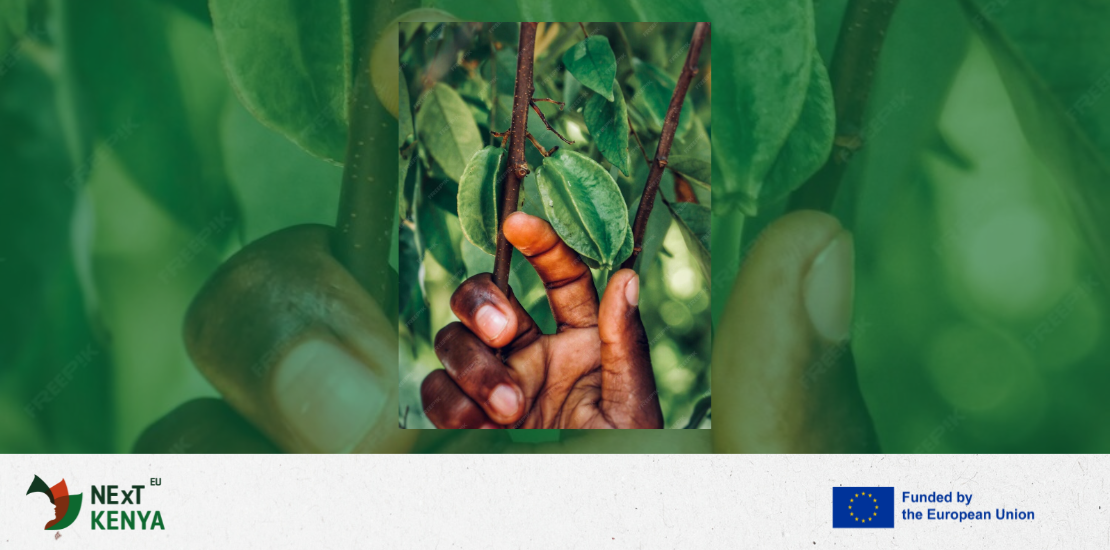
As part of its holistic approach to sustainability, COLEAD has developed a Sustainability Self-Assessment System (SAS) over the past ten years and through the FFM programmes. This system is designed to help agricultural stakeholders – particularly micro, small and medium enterprises (MSMEs), cooperatives and producer groups – analyse their practices, identify strengths and areas for improvement, and make progress towards more responsible and competitive agriculture. The SAS is based on four key objectives: To create a dynamic of continuous improvement in sustainable practices; To facilitate market access through better compliance with international standards; To provide strategic management tools through access to critical data; To guide and measure COLEAD’s technical interventions with partner beneficiaries.
As part of the NExT Kenya programme, COLEAD implemented the SAS with a large number of local MSMEs. Two SAS iterations – the first during the project design phase and the second in the fifth year of implementation – allowed the progress of the supported enterprises to be assessed.
Concrete and promising results – Kenya as an example
The results are compelling: significant improvements were observed in all areas evaluated. In particular
- Food safety: from 73.7% to 91.6%
- Occupational health and safety: from 74.8% to 90.3%
- Financial management: from 66.4% to 81.2%
- Sustainable agricultural practices: from 58.2% to 73.2%
- Energy efficiency: from 39.8% to 55.6%
- Water management: from 44.1% to 61.3%
- Waste management: from 47.0% to 59.4%
- Biodiversity: from 59.5% to 68.1%
- Soil management: from 57.0% to 66.4%
- Responsible business practices: from 81.5% to 86.2%
- Labour rights: from 83.4% to 85.9%
Each percentage reflects the level of application or compliance with sustainability best practices in each specific area, as reported in the self-assessments conducted by participating MSMEs. A high score (close to 100%) means that the enterprise is applying the vast majority of recommended good practices in that area. These improvements demonstrate not only a greater understanding of quality and sustainability standards, but also an increased ability of enterprises to plan, invest and position themselves competitively in international markets.
An ongoing process
The data presented is not final: a further phase of indicator collection and validation is underway and will continue until end of April 2025. This rigorous approach ensures a nuanced assessment of the programme’s impact and will help shape future activities based on key learnings.
COLEAD’s SAS, implemented through the NExT Kenya programme, is proving to be a powerful transformation tool for agricultural MSMEs. It supports their professionalisation, improves their environmental and social performance and prepares them to meet international market demands. Despite ongoing challenges, particularly around climate change, the results to date are encouraging and demonstrate the transformative potential of a structured and well-supported approach to sustainability.
This activity is implemented by COLEAD and supported by the NExT Kenya (New Export Trade) programme, established in collaboration with the EU Delegation in Nairobi and Kenyan stakeholders. This publication has been produced with the financial support of the EU. Its contents are the sole responsibility of COLEAD and can under no circumstances be regarded as reflecting the position of the EU.

